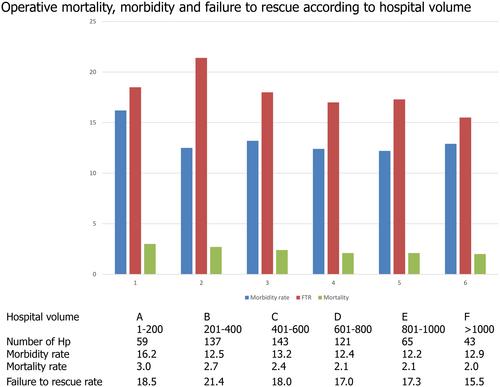Requirements for hospitals in Japan to have low operative mortality and failure-to-rescue rates
Abstract
Aim
We explored institutional factors in Japan associated with lower operative mortality and failure-to-rescue (FTR) rates for eight major gastrointestinal procedures.
Methods
A 22-item online questionnaire was sent to 2119 institutional departments (IDs) to examine the association between institutional factors and operative mortality and FTR rates. IDs were classified according to the number of annual surgeries, board certification status, and locality. In addition, the top 20% and bottom 20% of IDs were identified based on FTR rates and matched with the results of the questionnaire survey. Factors associated with operative mortality were selected by multivariate analysis.
Results
Of the 1083 IDs that responded to the questionnaire, 568 (213 382 patients) were included in the analysis. Operative morbidity, operative mortality, and FTR rates in the top 20% and bottom 20% of IDs were 13.1% and 8.4% (p < 0.001), 0.52% and 4.3% (p < 0.001), and 4.0% and 51.2% (p < 0.001), respectively. Based on the patients' background characteristics, the top 20% of IDs handled more advanced cases. No significant difference in locality was seen between better or worse hospital FTR rates, but fewer esophagectomies, hepatectomies, and pancreatoduodenectomies were performed in depopulated areas. Six items were found to be associated with operative mortality by multivariate logistic analysis. Only 50 (8.8%) IDs met all five factors related to better FTR rates.
Conclusions
The present findings indicate that several hospital factors surrounding surgical treatment, characterized by abundant human resources, are closely related to better postoperative recovery from severe complications.


 求助内容:
求助内容: 应助结果提醒方式:
应助结果提醒方式:


